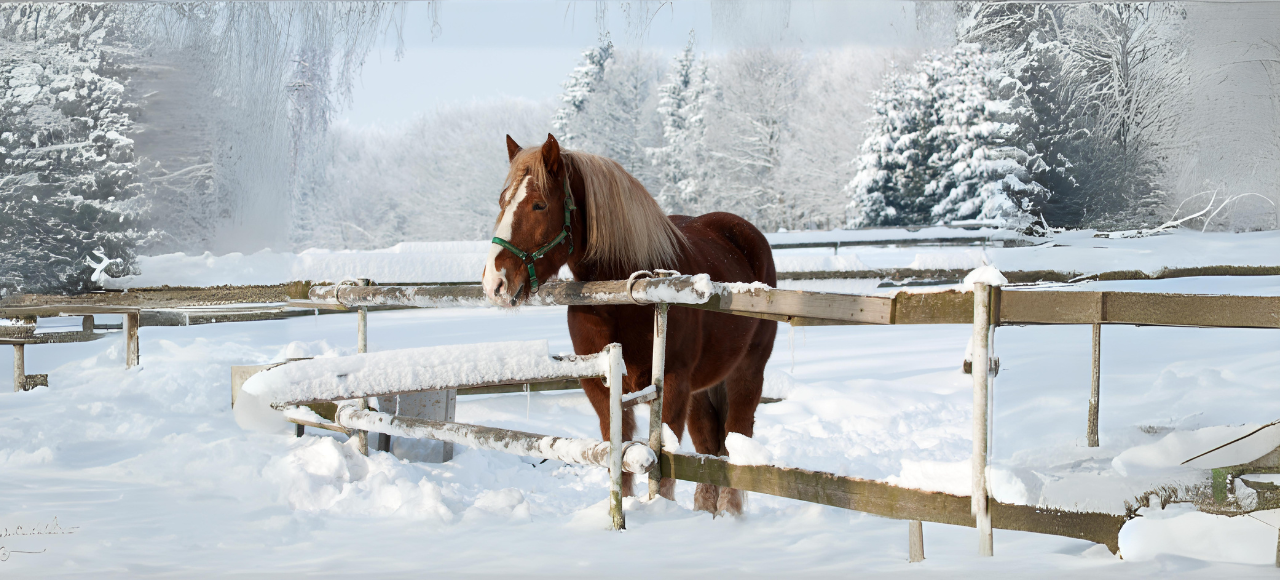
One of the most critical—and often overlooked—elements for maintaining a horse’s health and vitality is ensuring adequate water intake during winter. You might be surprised to learn that horses can suffer from dehydration just as easily in winter as they can in sweltering summer heat.
By understanding the challenges and implementing effective strategies, horse owners can help their animals stay hydrated and healthy throughout the winter months.
Common Issues with Water Intake in Winter
- Frozen Water Sources
Low temperatures can cause water buckets and troughs to freeze, making it difficult for horses to access water.
- Reduced Thirst in Cold Weather
Horses may not feel as thirsty in colder weather, leading to decreased water consumption. Additionally, many horses are less active in winter months due to confined spaces or shorter daylight hours, leading to decreased thirst signals.
- Dehydration Risk
With less water intake, the risk of dehydration increases, which can lead to serious conditions such as impaction colic.
- Limited Access to Natural Water Sources
Snow or ice-covered streams and ponds may become inaccessible, further limiting water availability.
- Unappealing Water Temperature
Cold water may be less appealing for horses, discouraging them from drinking enough.
- Increased Need for Water with Dry Feeds
Horses fed on dry hay during winter require more water to aid in digestion, but if water intake is inadequate, it can lead to digestive issues.
Strategies to Ensure Adequate Water Intake
- Provide Warm Water
- Offer water that is slightly warmed (45-65°F or 7-18°C) as horses are more likely to drink it compared to cold or freezing water.
- Use heated buckets or water heaters to maintain a consistent water temperature.
- Prevent Water from Freezing
- Use heated water buckets or automatic waterers with built-in heaters to prevent water from freezing.
- Insulate water troughs or containers to reduce the chances of freezing.
- Regularly check and break any ice that forms on open water sources.
- Encourage Drinking
- Add a small amount of salt to your horse’s feed or provide salt blocks to stimulate thirst.
- Consider adding electrolytes or flavorings (like apple juice) to water to make it more appealing.
- Offer water frequently, especially after feeding hay or during exercise.
- Regular Monitoring
- Check water sources multiple times a day to ensure they are not frozen and are adequately filled.
- Monitor your horse’s drinking habits and be alert for any changes in water consumption.
- Ensure Easy Access to Water
- Make sure water sources are easily accessible, especially if there is snow or ice in the area.
- Clear paths to water sources to ensure horses can reach them easily.
- Feed Moist Feeds
- Soak hay or feed warm mash to increase water intake through the diet.
- Provide fresh forage or wet feed to supplement water intake naturally.
Conclusion
Making sure your horse drinks enough water in winter will help prevent dehydration and stay healthy. To do this, tackle common issues like frozen water and reduced drinking by offering warm water and monitoring hydration. These simple steps will keep your horse comfortable and well-hydrated throughout the cold months.
Further reading: The Importance of Water in Winter | Ranvet
